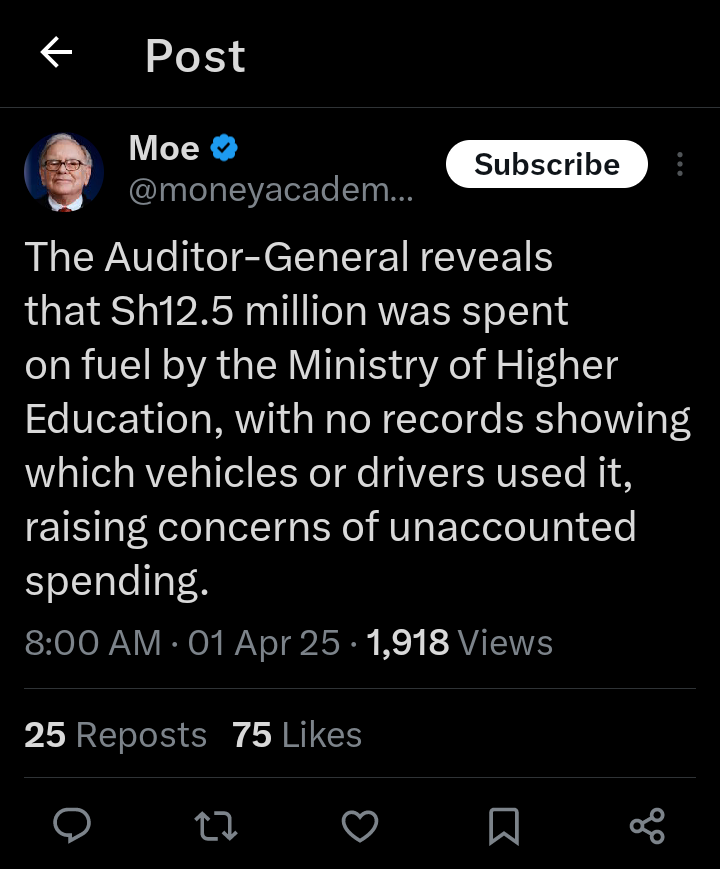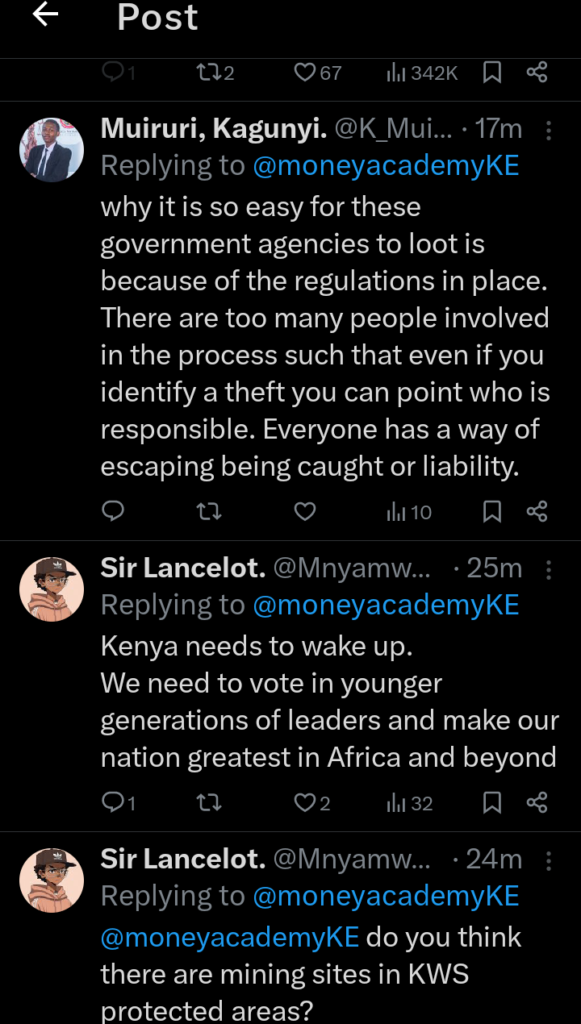The Auditor-General has raised serious concerns over how the Ministry of Higher Education spent Sh12.5 million on fuel without any records to show which vehicles or drivers used it.
This revelation has sparked questions about accountability in government spending, especially in a time when Kenyans are struggling with a high cost of living and the government keeps calling for austerity measures.
Fuel expenses in government ministries are expected to be well-documented, with clear records of which vehicles were fueled, who the drivers were, and the official duties they were performing.

However, in this case, there are no such records, meaning the money could have been misused, misappropriated, or even stolen. The lack of documentation leaves room for speculation that the fuel may have been used for personal purposes by individuals within the ministry, or that the money was never used to purchase fuel in the first place.
This is not the first time public funds have been questioned in government ministries. Over the years, audits have exposed how ministries spend millions without proper documentation, and in most cases, no action is taken against those responsible.
The Ministry of Higher Education, which is supposed to focus on improving learning institutions and funding research, should be leading by example in accountability. Instead, it has now joined the list of ministries that have been flagged for questionable expenditures.
With such large amounts of money disappearing under unclear circumstances, it raises concerns about how many other questionable transactions might be happening within the ministry.
If Sh12.5 million can go unaccounted for in just fuel expenses, how much more money is being mismanaged in other areas like procurement, allowances, or construction projects? The lack of transparency suggests that corruption could be deeply rooted, and if no action is taken, this trend will continue.

The Auditor-General’s report should not just be another document that is ignored. Relevant authorities, including Parliament and anti-corruption agencies, must demand accountability from the ministry.
Those responsible for approving these expenditures should be compelled to explain where the money went and why there are no records to support the spending. If investigations reveal foul play, individuals involved should face legal consequences.
Kenyans continue to pay heavy taxes, expecting that the money will be used to improve services, yet year after year, reports show that millions, or even billions, are being wasted or stolen.

This case is another example of how public funds are being misused with no fear of repercussions. Without urgent reforms in financial management and strict enforcement of accountability measures, such cases will keep happening.
If the Ministry of Higher Education cannot account for Sh12.5 million spent on fuel, how can Kenyans trust that other funds meant for education programs, scholarships, and research are being used properly?





















Add Comment